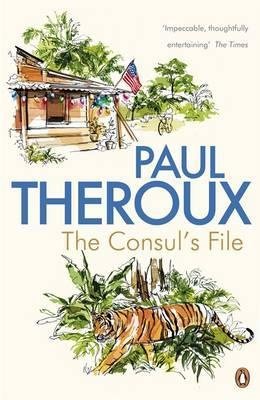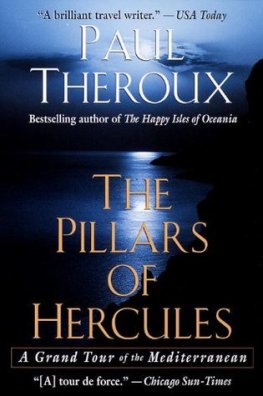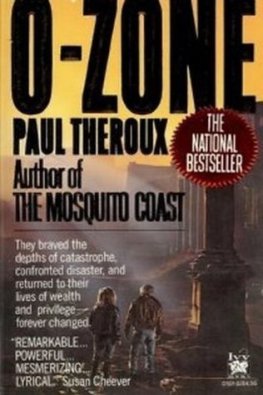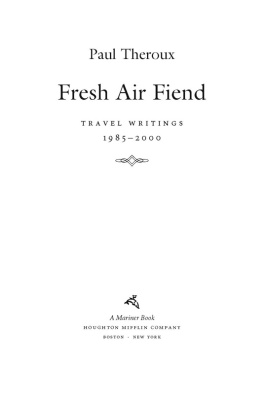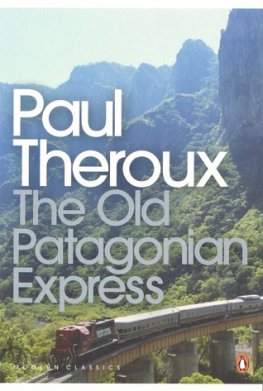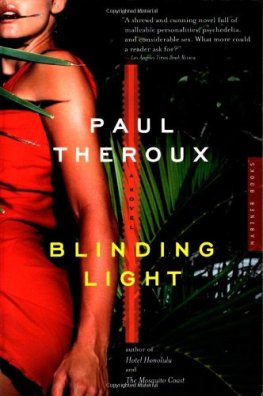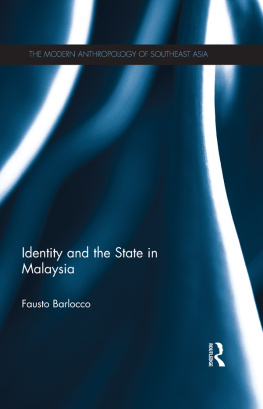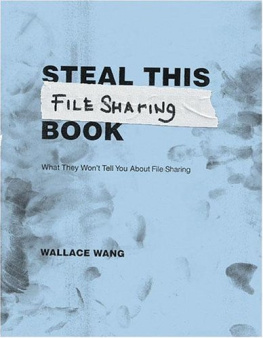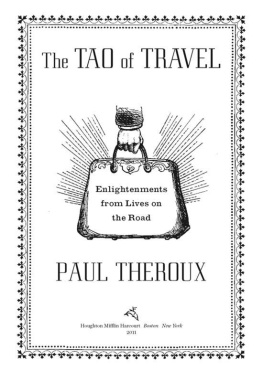Paul Theroux - The Consul's File
Here you can read online Paul Theroux - The Consul's File full text of the book (entire story) in english for free. Download pdf and epub, get meaning, cover and reviews about this ebook. year: 2011, publisher: Hamish Hamilton, genre: Prose. Description of the work, (preface) as well as reviews are available. Best literature library LitArk.com created for fans of good reading and offers a wide selection of genres:
Romance novel
Science fiction
Adventure
Detective
Science
History
Home and family
Prose
Art
Politics
Computer
Non-fiction
Religion
Business
Children
Humor
Choose a favorite category and find really read worthwhile books. Enjoy immersion in the world of imagination, feel the emotions of the characters or learn something new for yourself, make an fascinating discovery.
- Book:The Consul's File
- Author:
- Publisher:Hamish Hamilton
- Genre:
- Year:2011
- Rating:5 / 5
- Favourites:Add to favourites
- Your mark:
- 100
- 1
- 2
- 3
- 4
- 5
The Consul's File: summary, description and annotation
We offer to read an annotation, description, summary or preface (depends on what the author of the book "The Consul's File" wrote himself). If you haven't found the necessary information about the book — write in the comments, we will try to find it.
The Consul's File — read online for free the complete book (whole text) full work
Below is the text of the book, divided by pages. System saving the place of the last page read, allows you to conveniently read the book "The Consul's File" online for free, without having to search again every time where you left off. Put a bookmark, and you can go to the page where you finished reading at any time.
Font size:
Interval:
Bookmark:
Paul Theroux
The Consul's File
The Consul's File
It was a late recessional, one of the last in Asia. The consulate in that little town had been necessary to the American rubber estates, but the rubber trees were being replaced by oil palms, and most of the Americans had left. It was my job to phase out the consulate. In other places the consular task was, in the State Department phrase, bridge-building; in Ayer Hitam I was dismantling a bridge not a difficult job: we had never been very popular with the Malays.
I was unmarried; I had time on my hands. Because I had been told that everything I needed to know was in the files that were kept in the 'box-room' of the Residence, for a long time I avoided looking through them. I had other ideas, and whether it was the annoyance of being known in that place as just another white man or the pointless pressure of the bureaucracy I served, I felt a need to stake a claim, so I might carry a bit of that town away undis-torted. In a different age I might have taken a Malay mistress, but in my restless mood excited by what I saw and yet feeling a little like a souvenir-hunter I decided to write.
The place, people said, was full of stories. One of the first ones I heard told to me by a member of the Ayer Hitam Club (it concerned a planter on whom a Malay woman had placed a bizarre curse; the planter died of hiccups in Aden, and the man who told me the story claimed he had been in an adjoining stateroom) I later read in a volume of Somerset Maugham in the Club library.
I would write only what I knew to be true, or what I could verify. But the stories were elusive, and I sometimes wondered what another writer would make of them. For example, soon after I arrived there was a grass fire in a nearby village. In itself, this was not remarkable; but the fire had unlikely consequences. The economy of this village was based mainly on the sale of marijuana that grew in tall stalks all around it, a bright green weed known locally as bhang. It was intensively cultivated and nearly all of it was exported by smugglers. A fire had started no one knew how and it burned for days, first in the dry brush that lay under the marijuana, and finally consuming the marijuana itself and turning it into the bitter-sweet smoke of the narcotic.
The villagers were safe; their houses were surrounded by wide dirt compounds in which nothing grew. Instead of bolting when the fire started, they stayed where they were. And a strange thing happened: for five days, breathing the smoke from the grass-fire, they remained high, staggering and yelling, beating gongs and behaving like madmen. They were people who had never tasted alcohol, orthodox muslims who threw villagers in jail for eating during the daylight hours of Ramadhan. But they inhaled the smoke and forgot their prayers; they rolled in the dust, pounced on each other, ran naked through the kampong and burnt a Chinese shop. Afterwards they were ashamed and stopped growing the weed, and a delegation of them made the Haj to Mecca to ask Allah's forgiveness.
I thought it was a great story, but I could never make more of it than that. I had only the incident. 'That would make a terrific story,' people said at the Club. But that was the whole of it; to add more would be to distort it; it was extraordinary and so in all senses incidental. But stories like that convinced the Club members that the town was teeming with 'material'.
They were an odd crowd who treasured their oddity.
They thought of themselves as 'characters'this was a compliment in that place and the compliment was expected to be repaid. They verified each other's uniqueness: Angela Miller's dog had once had a hernia, Squibb had met Maugham at the Sultan's coronation, Alec Stewart often went to work in his pyjamas, Strang the surveyor had grown watercress in his gumboots, Duff Gil-espie had once owned a Rolls-Royce. But there is something impersonal in the celebration of eccentricity. No one mentioned that Angela had had a nervous breakdown and still, frequently, went into the billiard room to cry; that Alec was married to a Chinese girl half his age, that Squibb who had a wife in England was married to a very fat Malay woman, or that Strang's wife, who was pretty and rapacious, danced with every member but her husband; and when Suzie Wong was staged at the Club no one commented on the fact that Suzie was played not by a Chinese girl but by a middle-aged and fairly hysterical English woman.
Nor did anyone find it strange that in a place where there were Hindu bhajans, Malay weddings and shadow plays, and Chinese operas, the club members' idea of a night out was a long drive to Singapore to see a British Carry On movie, which they would laugh about for weeks afterward. They remarked on the heat: it was hot every day of the year. They didn't notice the insects, how every time a mosquito was slapped it left a smear of blood in your palm; they didn't mention the white ants, which were everywhere and ate everything. Their locutions were tropical: any sickness was a fever, diarrhoea was dysentery, every rainfall a monsoon. It wasn't romance, it was habit.
The town was some shops, the club, the mission, the dispensary, the Methodist school, my consulate. The Indians lived on the rubber estates, the Malays in neighbouring kampongs, the Chinese in their shops. The town was flat; in the dry season it was dusty, in the wet season flooded; it was always hot. It had no history that anyone could remember, although during the war the Japanese had used one of its old houses as headquarters for the attack on Singapore. The Club had once had polo-ponies and had won many matches against the Sultan; but all that remained were the trophies the stables had been converted to staff quarters. Apart from tennis, the club had no games, and the table in the billiard room where Angela Miller sometimes went to cry was torn and unusable.
After my first week in the town I thought I knew everything there was to know about the place; I had seen it all, I felt, and would not have minded leaving and going back to Africa where I had begun my career in the Foreign Service. The early sunlight saddened me and made me remember Africa; and yet the sun illuminated my mind as well, each dawn lending its peculiar light to my dreams. I had never dreamed much in America, but this tropical sun stirred me and I began to associate it with imagination, like the heat and noise that always woke me with a feeling of my own insignificance.
The unvarying heat, so different from the chilly weather I had known in Africa, had a curious effect on me: I had no sense of time passing one day was just like another and I felt puny and very old, as if my life was ending in this hot town in the east that was so small and remote it was like an island.
I had not started writing, since I considered writing my last resort. I would familiarize myself with the town by reading the files, and when I had done that and had no more excuses I would begin writing, if I still felt restless and unoccupied. I would not write much about myself; I would concentrate on the town, this island in which more and more, as they became friendly and candid, so many people said nothing ever happened.
Miss Leong, my secretary, had told me about the files. She had never seen them, but a succession of consuls had referred to them. They were secret; they were the reason my predecessors had chosen to take days off to work undisturbed at the Residence. Miss Leong was confidential, and she gave me the key, which in her loyal Chinese way she had never used. She transmitted this sense of mystery to me, of the secrets that lay in the box-room of the Residence, and it seemed to give my job an importance greater than any I could achieve as a writer of stories. Of the three men in the Foreign Service I knew to be writers, two were failures in their diplomatic duties and the third ended up selling real estate in Maryland.
Font size:
Interval:
Bookmark:
Similar books «The Consul's File»
Look at similar books to The Consul's File. We have selected literature similar in name and meaning in the hope of providing readers with more options to find new, interesting, not yet read works.
Discussion, reviews of the book The Consul's File and just readers' own opinions. Leave your comments, write what you think about the work, its meaning or the main characters. Specify what exactly you liked and what you didn't like, and why you think so.

